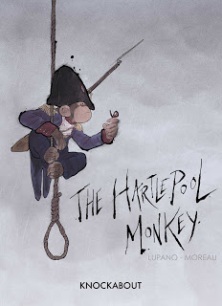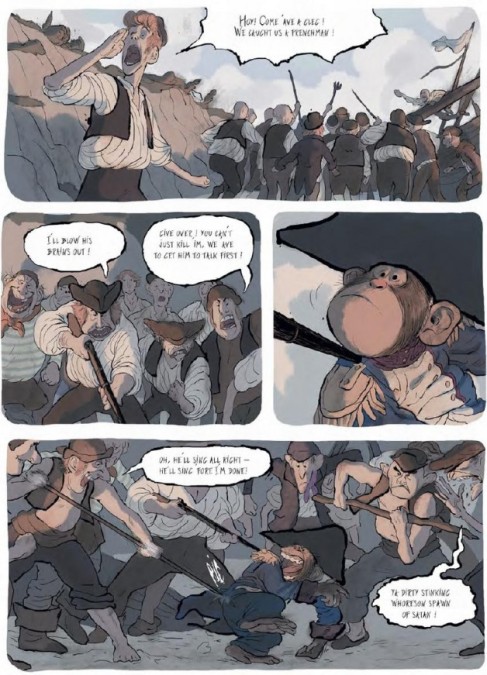 Citizen Kane was shown on BBC4 last night. Everyone has their own take on this classic – one of my first published pieces of journalism was about the links between Citizen Kane and Alan Moore’s graphic novel The Watchmen – but I am still intrigued by something Geoff Andrew pointed out to me a long time ago. Geoff was the Film Editor of Time Out, now head programmer at BFI Southbank, and he remarked on the fact that though the whole film is supposedly framed by a journalist’s quest to discover the meaning of “Rosebud”, the word Kane whispers with his dying breath, there was no one in the room to hear it.
Citizen Kane was shown on BBC4 last night. Everyone has their own take on this classic – one of my first published pieces of journalism was about the links between Citizen Kane and Alan Moore’s graphic novel The Watchmen – but I am still intrigued by something Geoff Andrew pointed out to me a long time ago. Geoff was the Film Editor of Time Out, now head programmer at BFI Southbank, and he remarked on the fact that though the whole film is supposedly framed by a journalist’s quest to discover the meaning of “Rosebud”, the word Kane whispers with his dying breath, there was no one in the room to hear it.
It follows logically that the whole film must be taking place in Kane’s head, his life flashing before his eyes.
There is a similar revisionism in Nick Hytner’s astonishing 2010 production of Hamlet, which gets an encore screening on October 22 as part of the National Theatre’s 50th anniversary celebrations. I’ve seen more than a dozen Hamlets over the years, from Jonathan Pryce summoning up the ghost of his father in a guttural voice from deep within himself to Michael Sheen in a mental asylum, deluded into believing that all the world’s a stage and that he is merely playing Hamlet in it. Hytner’s is one of the most interesting and well-rounded.
Anyway, Hytner evidently noticed something that every other director has overlooked: the death of Ophelia makes no sense. That long, lyrical description of her floating down the river, “till that her garments, heavy with their drink, pull’d the poor wretch from her melodious lay to muddy death” – if someone witnessed the scene for long enough to describe it thus to the Queen, why did they not step in to help?
Hytner’s conclusion is that after Ophelia went mad, Claudius had her assassinated, and the drowning story was concocted to cover it up. This, after all, is a man who has already killed his own brother, and in the context of Hytner’s modern production, with burly security guards with ear-pieces always standing at the ready and the palace a hot-bed of back-stabbing intrigue, it makes perfect sense. A fun one for the Diana conspiracists, too.
Incidentally, Rory Kinnear as Hamlet at one point adopts a smiley-face T-shirt with the word ‘Villain’ under it — “oh, villain, villain, damned smiling villain!… One may smile and smile, and be villain” — which brings us back full circle to Alan Moore’s The Watchmen.
I strongly suggest you book for the one-off screening. If it captures anything of the brilliance of the original live production, you’re in for a treat.








